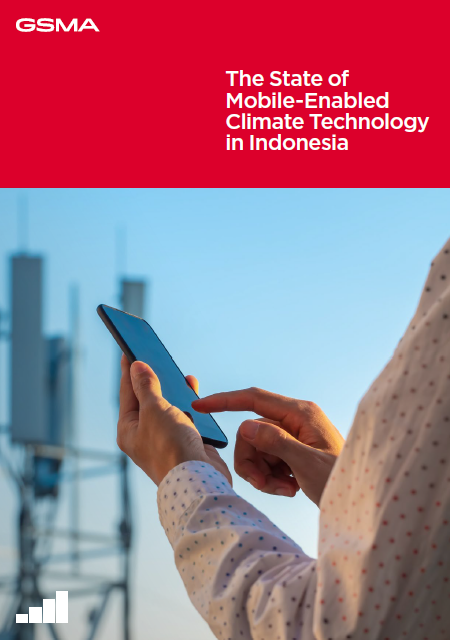Indonesia encounters the adverse effect of climate change challenges, such as extreme flooding, extended droughts, changes in rainfall patterns and temperature and sea level rise. These risks are intensified by Indonesia’s carbon intensive economy in which Indonesia ranks eighth as the most significant global emitter of green gas houses (GHGs), with forest, and other land use, energy, and waste as the key contributors. In response to its climate challenges, the country aims to reduce emissions by 29 per cent unconditionally and 41 per cent conditionally by 2030 and increases its capacity to adapt and to build resilience in socio-economic, social, and livelihood landscapes.
To enhance Indonesia’s climate mitigation and resilience efforts, the GSMA Mobile Innovation Hub Indonesia conducted a landscaping study that explores the potential for mobile-enabled technology solutions in combating climate changes in three focus areas, namely: energy, waste, and natural resource management (NRM).
The report presents an overview of the current use of mobile-enabled technology solutions in Indonesia, investigates barriers encountered by Indonesia that hinder the adoption of mobile-enabled technology solutions, and explores the potential approaches to unlocking novel and innovative climate responses.


